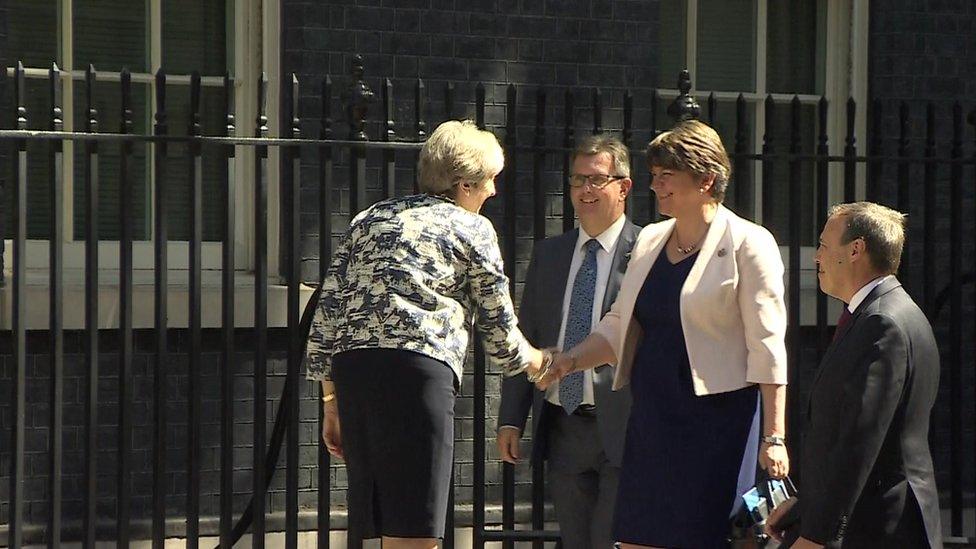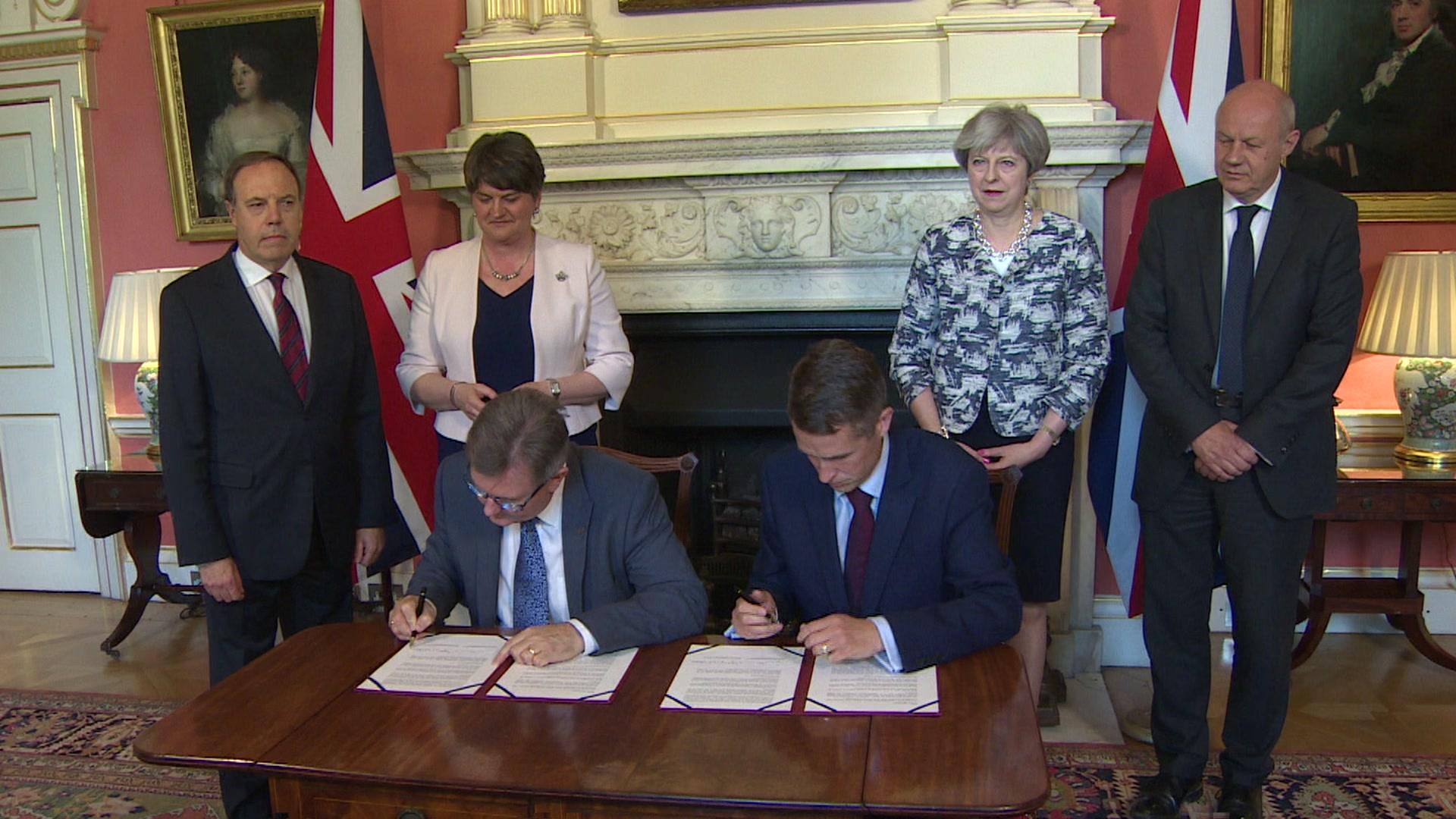Where does Tory-DUP deal leave power-sharing talks?
- Published

The talks have taken more than two weeks to conclude
Northern Ireland will receive an extra £1bn over the next two years as part of the deal that will see the Democratic Unionist Party's 10 MPs back Theresa May's minority government in Commons votes.
DUP leader Arlene Foster said the "wide-ranging" pact was "good for Northern Ireland and the UK" - but where does it leave talks to restore power-sharing in Belfast?
Arlene Foster made a point of finishing her comments outside Number 10 by announcing she was returning immediately to Stormont to try to re-establish the power sharing executive.
Theresa May's deputy, Damian Green, also defended the financial largesse as an attempt to help Stormont politicians to overcome their differences.
The chief whips from both parties sign the document
After her Westminster election success, the DUP leader is going nowhere.
Her party argues that Sinn Féin should abandon its red line of refusing to share power with Mrs Foster until an inquiry into the controversial RHI heating scheme is over.
According to this logic, republicans should not look Theresa May's gift horse in the mouth, but concentrate on resuming their ministerial duties and help to hand out the extra cash.
Brexit blank cheque?
Gerry Adams's initial response treats the DUP-Conservative deal like a "curate's egg" - that is "good in parts".
The Sinn Féin president acknowledged that the extra cash would "help to ease the enormous pressure" on Northern Ireland's public services.

Where will the money go?
Health: A minimum of £250m, with £200m directed to health service transformation and £50m towards mental health provision. It will also receive £50m to "address immediate pressures"
Education: £50m to "address immediate pressures"
Infrastructure: £400m for projects including delivery the York Street Interchange, plus £150m to provide ultra-fast broadband across Northern Ireland. Northern Ireland's capital budget is currently about £1bn per year.
Deprivation: £100m over five years targeted to deprived communities
VAT and Air Passenger Duty tax: Agreed to further consultation
Corporation tax: Agreed to work towards devolving the tax to Stormont
City deals and Enterprise Zones: Agreed to "comprehensive and ambitious set" of city deals and "limited number" of Enterprise Zones

But he added that "the devil is in the detail" - and attacked the agreement as providing a "blank cheque for a Tory Brexit".
With the deadline for the Stormont talks on Thursday, there is not much time for the politicians to ponder their options.
Damian Green: Cash is to help devolved government
Sinn Fein will want to make more progress on their other objectives, like greater legal recognition for the Irish language.
It is uncertain whether republicans will erase their red line, but the DUP-Tory deal has given them something to think about.
- Published26 June 2017
